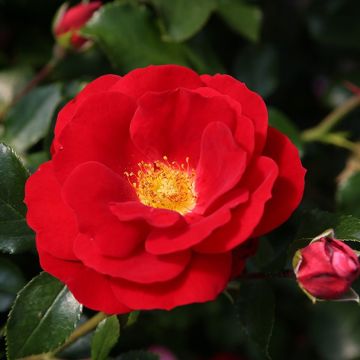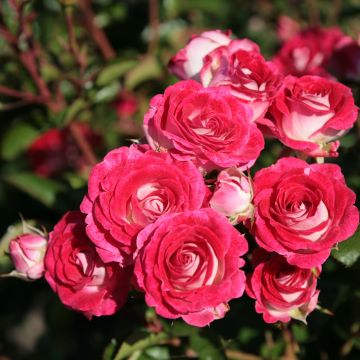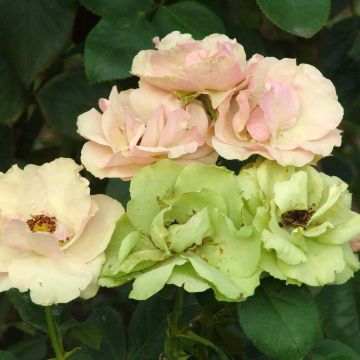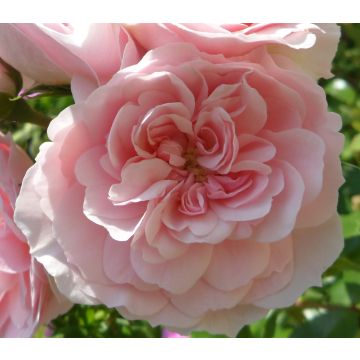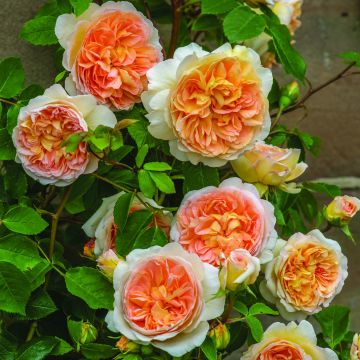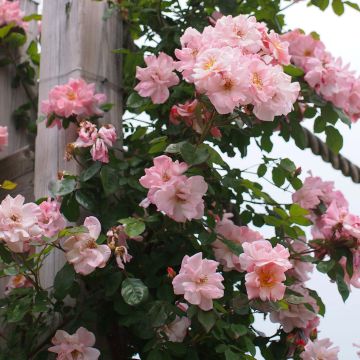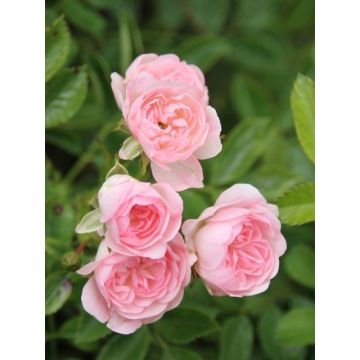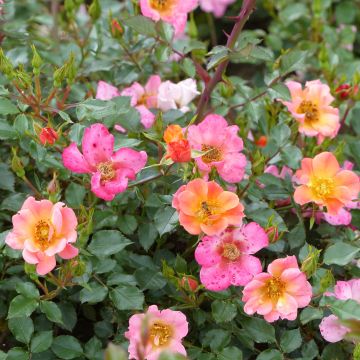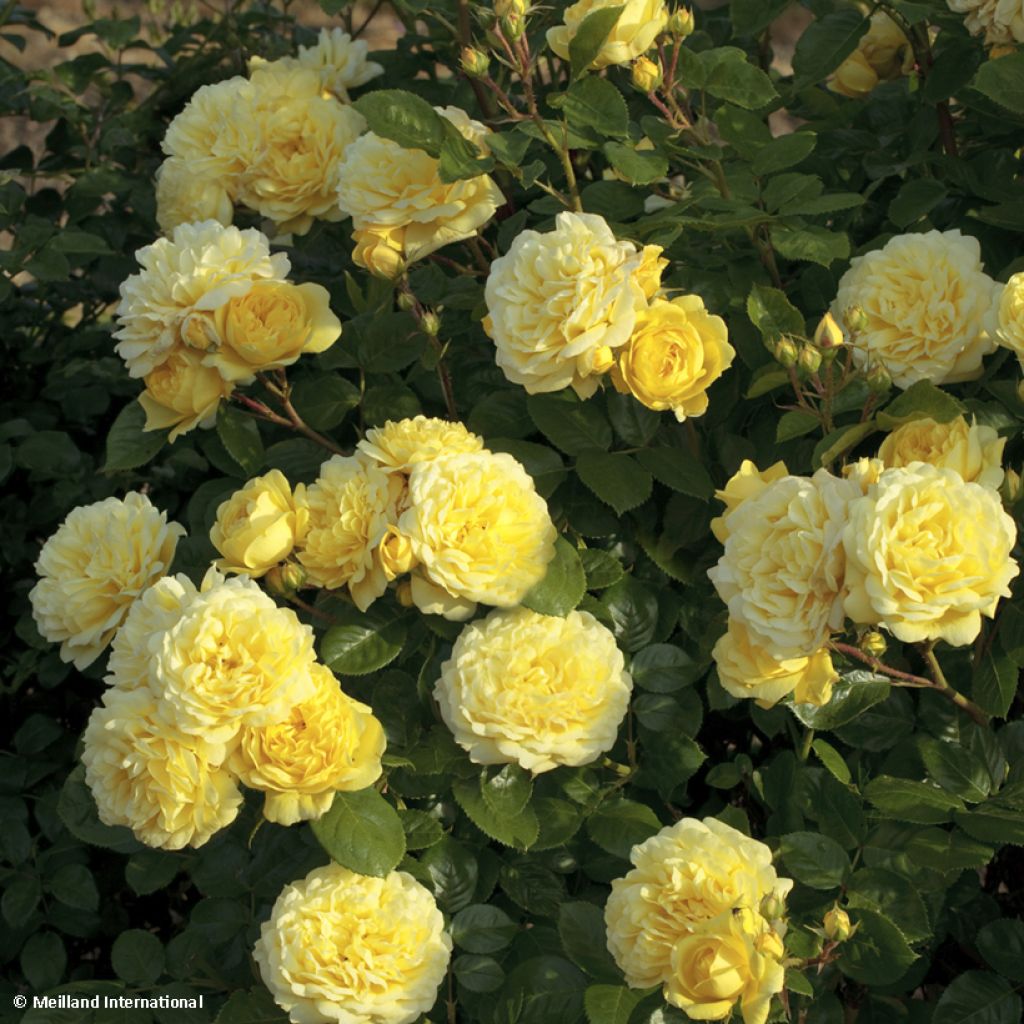

Rosa x floribunda Rosa Anny Duperey
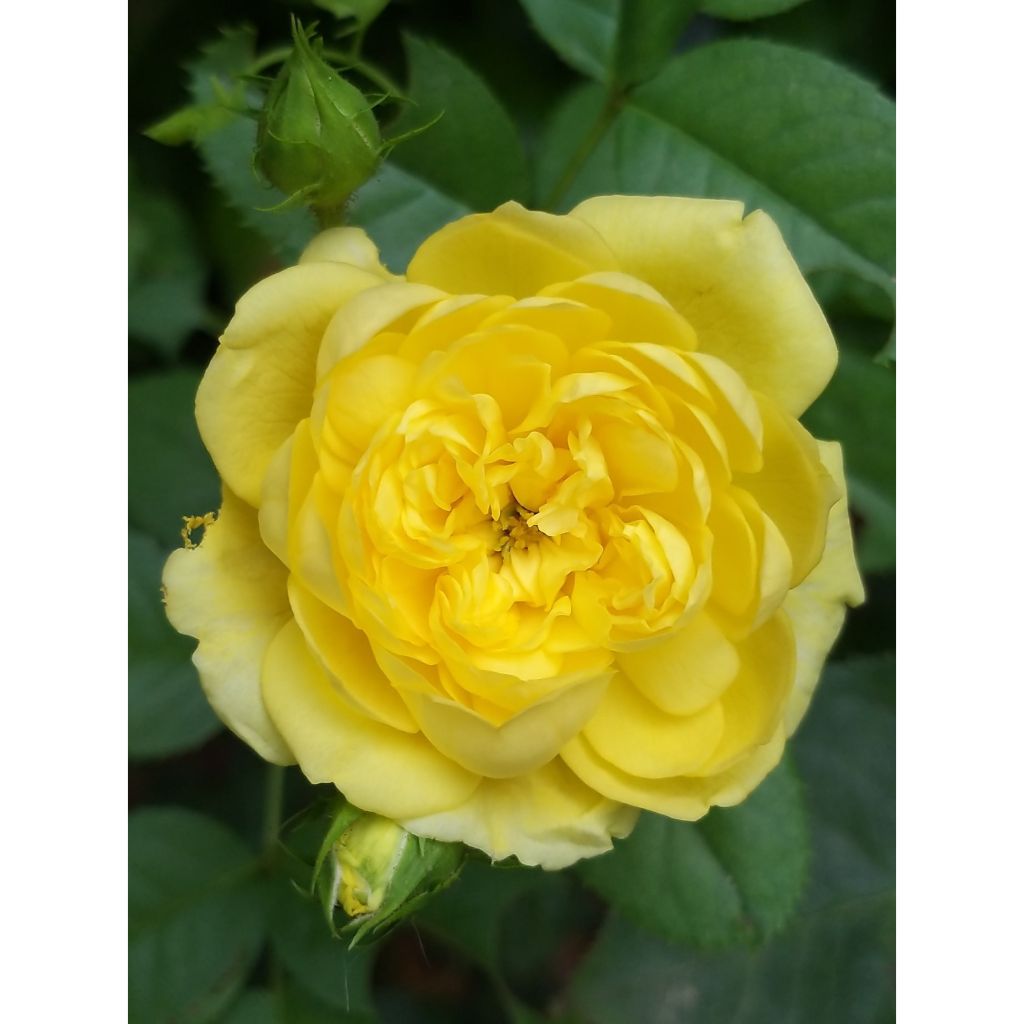

Rosa x floribunda Rosa Anny Duperey
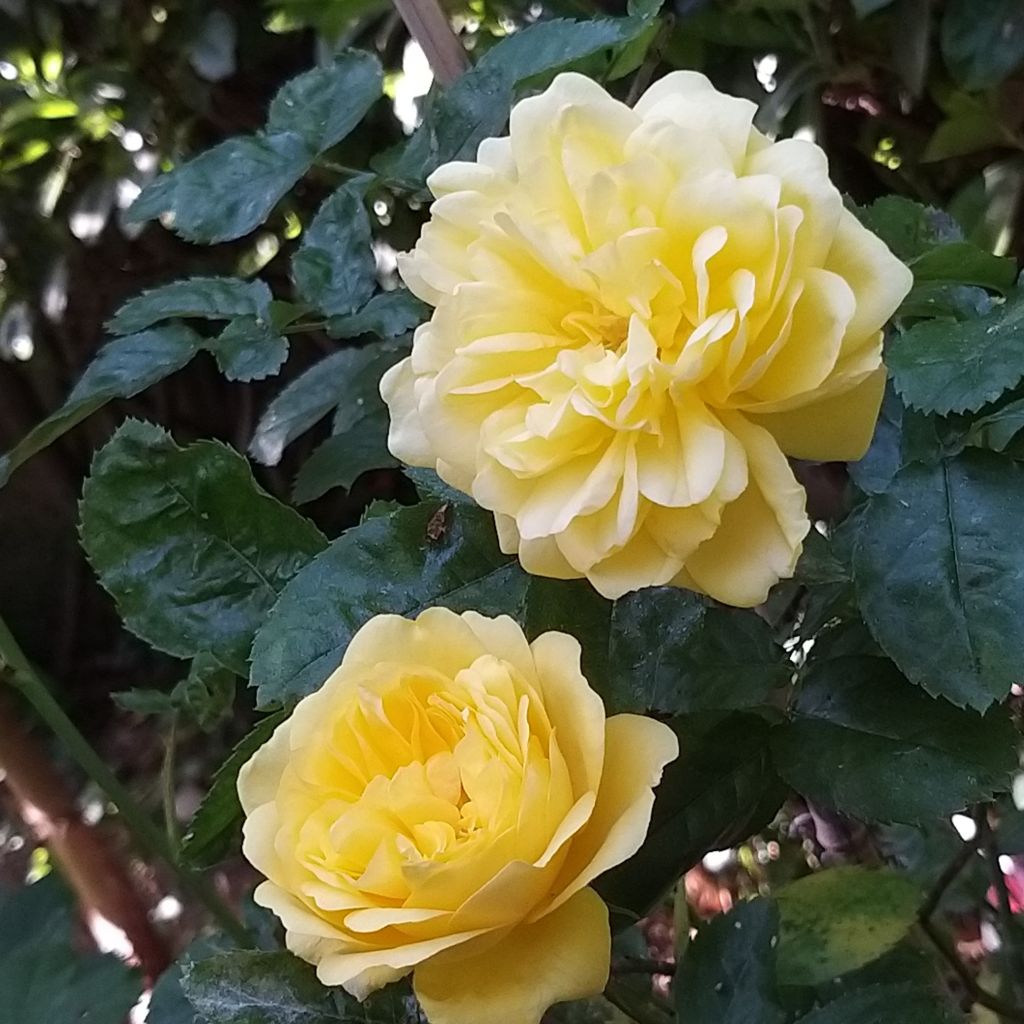

Rosa x floribunda Rosa Anny Duperey
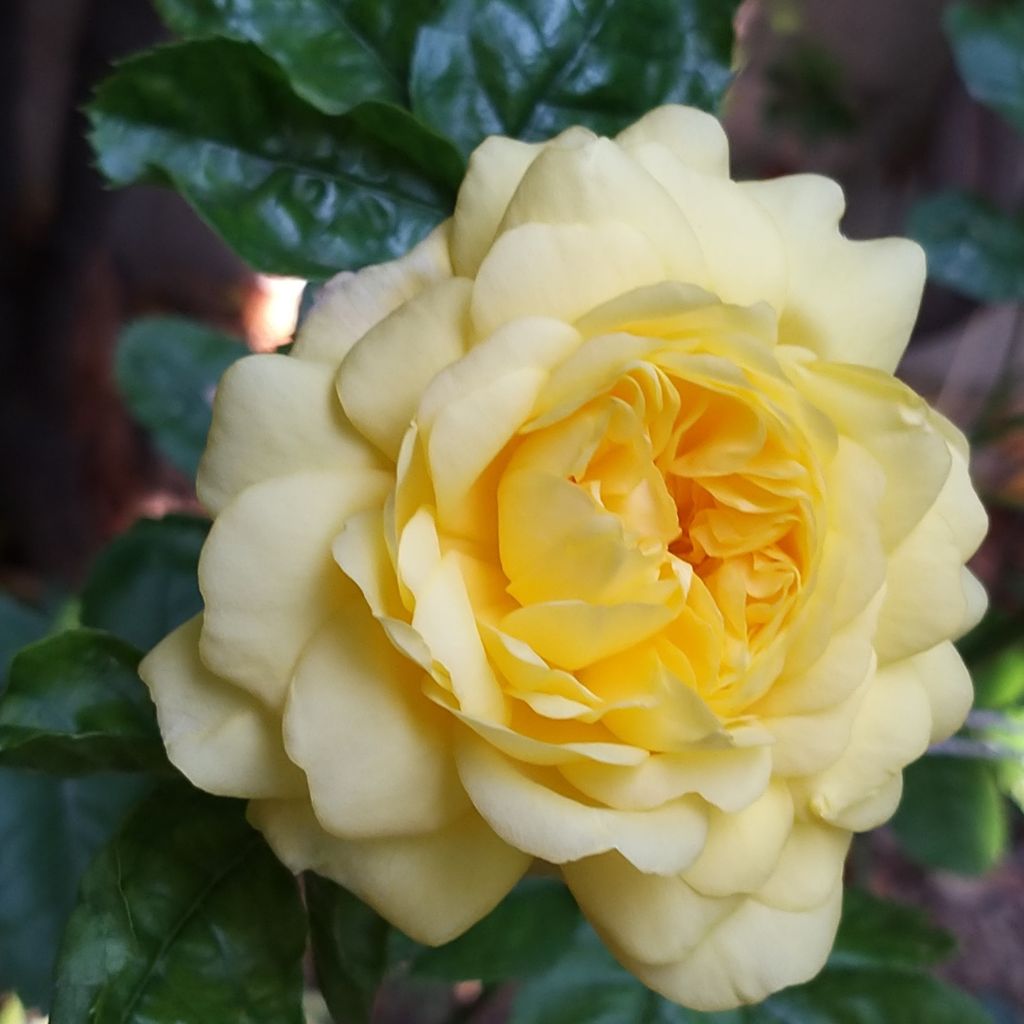

Rosa x floribunda Rosa Anny Duperey
Rosa x floribunda Rosa Anny Duperey
Rosa x floribunda Rosa Anny Duperey 'Meitongas'
Floribunda Rose
This item cannot be shipped to the selected country
Delivery charge from €5.90
Delivery charge from €5.90
More information
Schedule delivery date,
and select date in basket
This plant carries a 24 months recovery warranty
More information
We guarantee the quality of our plants for a full growing cycle, and will replace at our expense any plant that fails to recover under normal climatic and planting conditions.
From €5.90 for pickup delivery and €6.90 for home delivery
Express home delivery from €8.90.
From €5.90 for pickup delivery and €6.90 for home delivery
Express home delivery from €8.90.


Does this plant fit my garden?
Set up your Plantfit profile →
Description
The Anny Duperey Rose Bush is undoubtedly one of the best in the category of yellow landscape roses. The bush is vigorous, exceptionally disease-resistant, with an early, generous, and prolonged flowering. Adorned with lemon yellow frilly roses, it illuminates the space around it from May until the first frost. Its flowers exude a sweet lemon scent and display a stable lemon yellow colour, both intense and bright, perfectly highlighted by foliage that remains decorative until the end of the season. Truly easy to grow, almost maintenance-free, this naturally-shaped rose bush finds its place in all flower gardens, in a bed or in a small hedge.
The Anny Duperey 'Meitongas' Rose is a creation of Meilland, launched in 2007. Awarded in several international competitions (1st Prize Barcelona (Spain) 2005. Certificate of Merit St Albans (United Kingdom) 2008), this creation also obtained the German ADR label in 2008 for its excellent natural disease resistance, among other criteria. Quite rare for a French rose.
This variety Anny Duperey belongs to the family of floribunda roses, with flowers grouped in bouquets. It quickly forms a ramified bush with an upright and slightly spreading habit, reaching a height of about 1.10 m (4ft) and a width of 80 cm (32in). Its thorny stems bear abundant and highly decorative foliage. Its leaves are divided into 5 shiny leaflets of intense green, finely toothed on the edges. Its flowering begins in May, and it repeats in summer until October. As with all perpetual roses, the flowering diminishes in summer if it gets too hot and dry. Its corollas are very double, composed of 80 to 85 swirling petals, resembling old-fashioned roses, they form large pompoms about 8-9 cm (3-4in) wide, and are clustered in groups of 3 to 15 units. The flower offers a subtle gradient from lemon yellow to creamy yellow, from the centre to the periphery. Each flower is carried by a peduncle and releases a powerful peppery scent when crushed. The foliage, deciduous, falls in autumn.
The Anny Duperey rose, generous and warm, adapts to all soils that are not too dry and to all climates, which allows it to be welcomed without reservation in many regions. In the south, it is best placed in the morning sun, while it will bloom better in full sun in the north. It works wonders in a bed or in a small hedge. It can also be planted in groups of 3 plants, arranged in a triangle, isolated in the centre of a bed of blue, white, or orange flowers (chamomiles, lavenders, sages, caryopteris). It can also be paired with landscape roses in white, mauve, red, or orange. It combines perfectly with perennial geraniums (Geranium 'Rozanne', 'Blue Cloud', 'Anne Folkard', 'Nimbus', 'Orion'), perovskias, nepetas, as well as medium-sized grasses.
Report an error about the product description
Plant habit
Flowering
Foliage
Botanical data
Rosa
x floribunda
Rosa Anny Duperey 'Meitongas'
Rosaceae
Floribunda Rose
Cultivar or hybrid
Other Polyantha clustered Roses
Planting and care
Plant this floribunda rose from November to March, in ordinary, well-loosened and free-draining soil. Roses prefer clayey soils, rather heavy than light. In soil that is too sandy, too compact or too dry in summer, it is preferable to bury compost, decomposed manure or leaf-mould at the bottom of the planting hole. However, this rose dreads waterlogged soils in winter. Place it in a sunny position, at most in partial shade. Roses are greedy plants, a specific rose fertiliser application will be beneficial when the foliage emerges, then regularly during the entire flowering period.
To encourage re-blooming, regularly remove faded flowers. Floribunda rose varieties are more vigorous and floriferous than large-flowered rose varieties. Therefore, the stems should be pruned to about a quarter of their length (4 to 6 buds from the base of the stem) at the end of winter. Always prune above an outward-facing bud, so that the bush thickens and the branches do not become tangled in the centre of the shrub.
Planting period
Intended location
Care
-
, onOrder confirmed
Reply from on Promesse de fleurs
Roses by purpose
Haven't found what you were looking for?
Hardiness is the lowest winter temperature a plant can endure without suffering serious damage or even dying. However, hardiness is affected by location (a sheltered area, such as a patio), protection (winter cover) and soil type (hardiness is improved by well-drained soil).

Photo Sharing Terms & Conditions
In order to encourage gardeners to interact and share their experiences, Promesse de fleurs offers various media enabling content to be uploaded onto its Site - in particular via the ‘Photo sharing’ module.
The User agrees to refrain from:
- Posting any content that is illegal, prejudicial, insulting, racist, inciteful to hatred, revisionist, contrary to public decency, that infringes on privacy or on the privacy rights of third parties, in particular the publicity rights of persons and goods, intellectual property rights, or the right to privacy.
- Submitting content on behalf of a third party;
- Impersonate the identity of a third party and/or publish any personal information about a third party;
In general, the User undertakes to refrain from any unethical behaviour.
All Content (in particular text, comments, files, images, photos, videos, creative works, etc.), which may be subject to property or intellectual property rights, image or other private rights, shall remain the property of the User, subject to the limited rights granted by the terms of the licence granted by Promesse de fleurs as stated below. Users are at liberty to publish or not to publish such Content on the Site, notably via the ‘Photo Sharing’ facility, and accept that this Content shall be made public and freely accessible, notably on the Internet.
Users further acknowledge, undertake to have ,and guarantee that they hold all necessary rights and permissions to publish such material on the Site, in particular with regard to the legislation in force pertaining to any privacy, property, intellectual property, image, or contractual rights, or rights of any other nature. By publishing such Content on the Site, Users acknowledge accepting full liability as publishers of the Content within the meaning of the law, and grant Promesse de fleurs, free of charge, an inclusive, worldwide licence for the said Content for the entire duration of its publication, including all reproduction, representation, up/downloading, displaying, performing, transmission, and storage rights.
Users also grant permission for their name to be linked to the Content and accept that this link may not always be made available.
By engaging in posting material, Users consent to their Content becoming automatically accessible on the Internet, in particular on other sites and/or blogs and/or web pages of the Promesse de fleurs site, including in particular social pages and the Promesse de fleurs catalogue.
Users may secure the removal of entrusted content free of charge by issuing a simple request via our contact form.
The flowering period indicated on our website applies to countries and regions located in USDA zone 8 (France, the United Kingdom, Ireland, the Netherlands, etc.)
It will vary according to where you live:
- In zones 9 to 10 (Italy, Spain, Greece, etc.), flowering will occur about 2 to 4 weeks earlier.
- In zones 6 to 7 (Germany, Poland, Slovenia, and lower mountainous regions), flowering will be delayed by 2 to 3 weeks.
- In zone 5 (Central Europe, Scandinavia), blooming will be delayed by 3 to 5 weeks.
In temperate climates, pruning of spring-flowering shrubs (forsythia, spireas, etc.) should be done just after flowering.
Pruning of summer-flowering shrubs (Indian Lilac, Perovskia, etc.) can be done in winter or spring.
In cold regions as well as with frost-sensitive plants, avoid pruning too early when severe frosts may still occur.
The planting period indicated on our website applies to countries and regions located in USDA zone 8 (France, United Kingdom, Ireland, Netherlands).
It will vary according to where you live:
- In Mediterranean zones (Marseille, Madrid, Milan, etc.), autumn and winter are the best planting periods.
- In continental zones (Strasbourg, Munich, Vienna, etc.), delay planting by 2 to 3 weeks in spring and bring it forward by 2 to 4 weeks in autumn.
- In mountainous regions (the Alps, Pyrenees, Carpathians, etc.), it is best to plant in late spring (May-June) or late summer (August-September).
The harvesting period indicated on our website applies to countries and regions in USDA zone 8 (France, England, Ireland, the Netherlands).
In colder areas (Scandinavia, Poland, Austria...) fruit and vegetable harvests are likely to be delayed by 3-4 weeks.
In warmer areas (Italy, Spain, Greece, etc.), harvesting will probably take place earlier, depending on weather conditions.
The sowing periods indicated on our website apply to countries and regions within USDA Zone 8 (France, UK, Ireland, Netherlands).
In colder areas (Scandinavia, Poland, Austria...), delay any outdoor sowing by 3-4 weeks, or sow under glass.
In warmer climes (Italy, Spain, Greece, etc.), bring outdoor sowing forward by a few weeks.


































